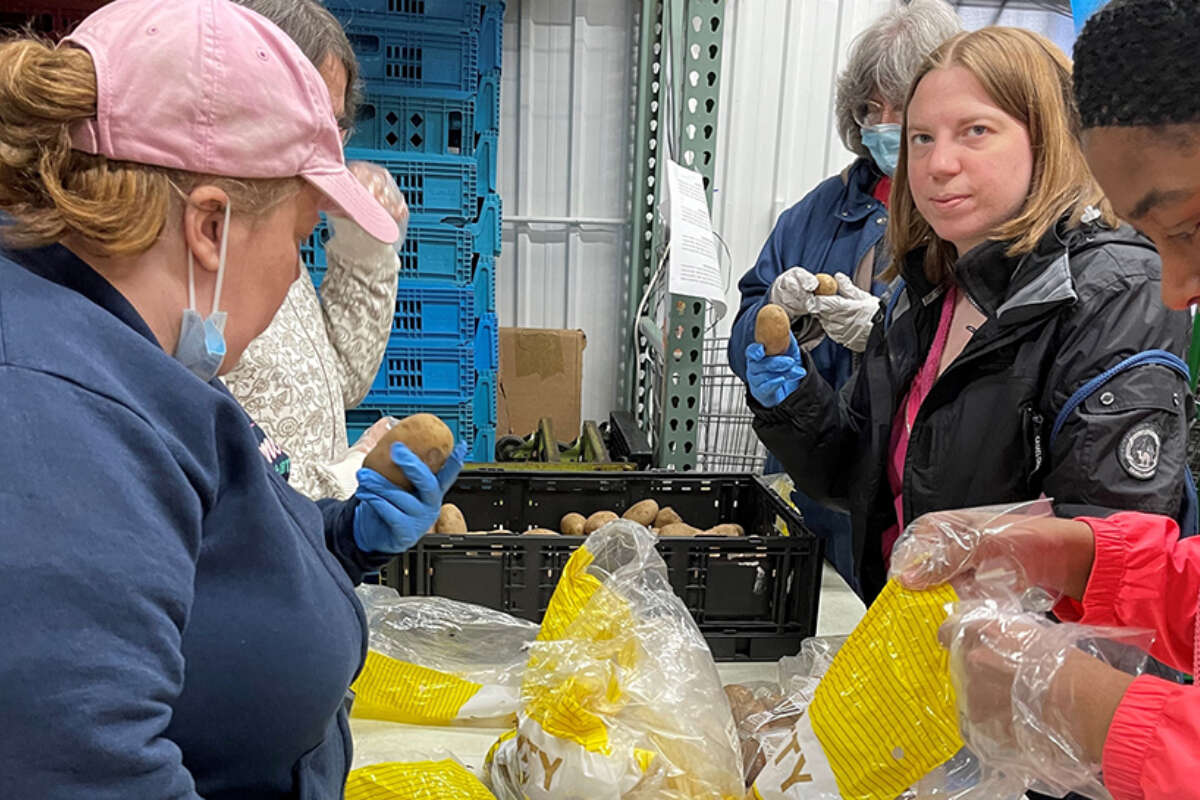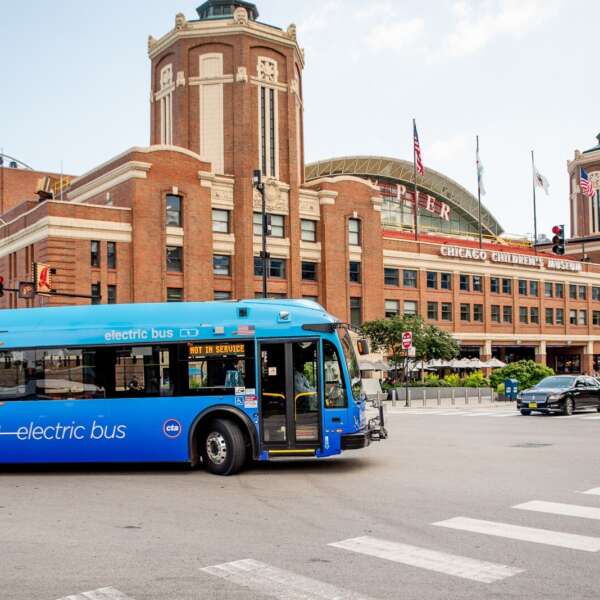Nonprofits band together with the goal of providing cross-county transportation for seniors and individuals with disabilities
May 26, 2022
May 26, 2022

This is part of our Moving You series, which examines federally funded programs managed by the RTA that expand transportation options and access for all.
Coordinating dial-a-ride and paratransit services to be efficient, flexible, and more borderless is a challenge that transit agencies, nonprofits, and local and regional transportation departments have grappled with for decades. Luckily for northeastern Illinois, a collective of eight nonprofit agencies serving seniors, individuals with disabilities, and/or people with low incomes is using federal funds to tackle the issue.
The Transportation Collaborative is made up of the Little City Foundation, CTF Illinois, Clearbrook, Community Service Partners—which represents New Star Services, Park Lawn Services, Sertoma Center, and Blue Cap—and is being led by the Ray Graham Association. Collectively, the reach of these agencies covers the entire six-county RTA service area, providing over 1 million rides to more than 12,000 people each year. Services provided by all eight of these agencies include residential, community day services, recreation, job training, employment services, and home-based services.
All of these agencies have their own transportation programs, but through the Section 5310: Enhanced Mobility of Seniors and Individuals with Disabilities Program, the collective will receive $298,400 in federal funding allocated by the RTA to study the feasibility of consolidating and coordinating the current agencies’ routes, support services, scheduling software, and in-vehicle technologies; documenting the costs of providing the current transportation programs and estimating the potential savings that can be realized; and developing sustainable service expansions and improvements. The Ray Graham Association is receiving an additional $752,000 in federal funding allocated by the RTA to continue operating current transportation services for their clients.
Dennis Fones of Westmont has been using the Ray Graham Association’s transportation services since 2014 to give back to his community. He and others volunteer at the West Suburban Community Pantry in Woodridge, packing 100 bags of produce, stocking meat freezers, labeling the food, and helping with other tasks to ensure people in the community receive weekly groceries.
Another rider, Cami Smith of Woodridge, is a Ray Graham Association board member and has used these transportation services for 20 years. Smith uses a power wheelchair and has taught other people how to enter and exit the van and make safe transfers. Over the past couple decades, she’s used the van for everything from getting to work to visiting her loved ones.
Ushma Patel, a program manager for the Ray Graham Association, said in addition to maintaining independence, riders also develop close friendships with their drivers.
“We asked one of our riders during an exercise, ‘Who is in your intimate relationship circle? Your friend, you mom, dad, brother, sister?’” Patel said, “She said, ‘No, my Pace bus driver. If I don’t see him Monday through Friday, I get sad because my day always starts with him.”
“Just talk about daily living,” said Mark Langan, Chief Development Officer for the Ray Graham Association. “You go to the post office, the grocery store, the doctor, the shoe store, the mall; people with disabilities have to do the same thing, and they’re often limited in that they cannot operate their own vehicle. Many do, but many don’t. The state of Illinois says the best thing for people with disabilities is to get out of the house, to get out of the day programs, and experience their communities. The state wants people with disabilities to live their best life; that’s going to museums, going to concerts, going to a job, seeing relatives, going to a doctor’s appointment. All the things all of us do every day, we want to make sure that works for the people we serve.”
Being able to get from place to place is one of the biggest factors in seniors and individuals with disabilities living fulfilling, independent lives. That’s why it’s so important for these nonprofits throughout the region to provide service that works efficiently, with fewer borders and barriers. Langan is optimistic that the study investigating coordinated services—likely to get underway later this year—will result in greater independence for the people the organizations serve.
“For the last couple of years, we’ve had conversations with members of the Community Planning team at the RTA about mobility management and better ways to do what we do,” Langan said. “Both the RTA and the nonprofits are on the same page: We don’t want to drive by someone else providing the same kinds of transportation services if we can find a better way to serve our riders’ needs. We want to manage transportation more on a regional basis rather than organization by organization. So, we wanted to do this study, and we’re excited to be figuring out what’s going to work, how it will work, and what our best path is going forward. We can expand the service footprint, and we can give people with disabilities as much freedom as possible to experience their communities. That would be a win.”
Subscribe to our Newsletter
Related Articles
 How to navigate the Democratic National Convention using public transportation
How to navigate the Democratic National Convention using public transportation
The Democratic National Convention is coming to Chicago’s United Center and McCormick Place August 19-22, 2024, and with it will come roughly 50,000 visitors...
July 25, 2024 How to use transit to explore museums in the Chicago region
How to use transit to explore museums in the Chicago region
The Chicago region is home to countless accessible cultural and educational amenities including 150 museums across several counties. The most cost-effective ...
July 10, 2024 RTA welcomes summer 2024 interns
RTA welcomes summer 2024 interns
This summer the RTA welcomed six new interns from Chicago-area universities. The interns work in various departments including Communications, IT, Strategic ...
June 27, 2024 Four months into the Access Pilot Program, over 3,000 Metra riders experiencing low incomes enrolled for more affordable fares
Four months into the Access Pilot Program, over 3,000 Metra riders experiencing low incomes enrolled for more affordable fares
On February 1, RTA launched the Access Pilot Program in partnership with Cook County and Metra, extending reduced fares to eligible Metra riders experiencing...
June 13, 2024 How to use transit to celebrate Pride Month in the Chicago region
How to use transit to celebrate Pride Month in the Chicago region
June is Pride Month, a time to honor and celebrate Lesbian, Gay, Bisexual, Transgender, Queer and Questioning (LGBTQ+) individuals in the United States. The ...
May 31, 2024 How to use transit to enjoy summer in the Chicago region
How to use transit to enjoy summer in the Chicago region
Summer weather is here and although the season can feel short for many Chicago residents, there is no shortage of fun to be had. To celebrate the sunshine, t...
May 24, 2024